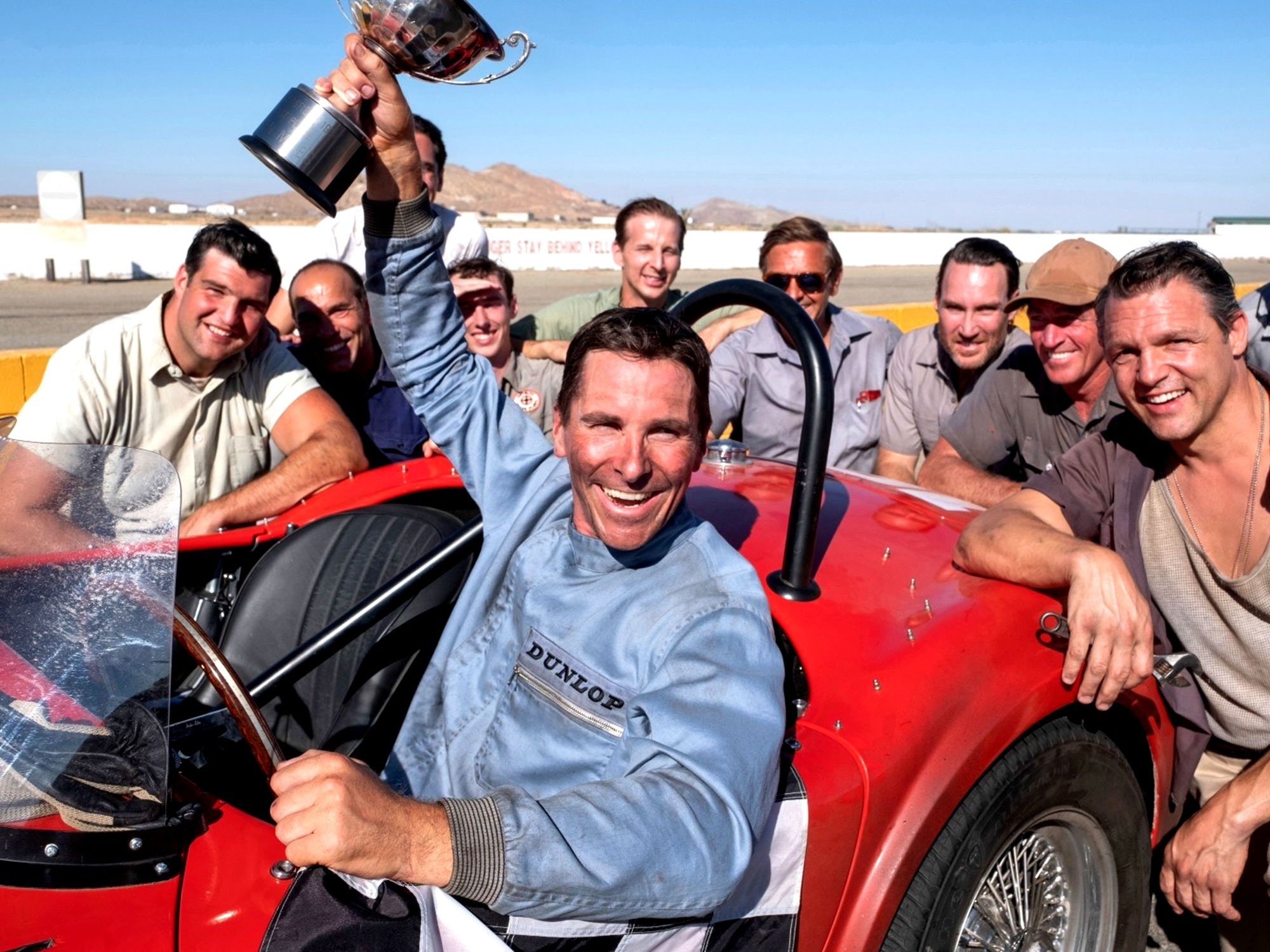
In the year of our Lord 1977, the BBC launched a weekly motoring magazine show called Top Gear, which was essentially metal fetish pornography for petrol-heads of all ages. You could very well imagine the Brummie racing driver and mechanic Ken Miles being a diehard fan, if he hadn’t upped sticks and migrated to America in the early 1950s. He is brought to life by Christian Bale in this roistering, brassy historical drama based on the fallout of a petty professional rivalry between Henry Ford II and Enzo Ferrari.
Where the former had perfected the bland, practical, affordable family saloon, the latter sunk every lira he made into producing sleek, speedy, erotically-desired racing cars. Then the demographics shifted: teen hotrods suddenly had money to blow, and wanted fast, sexy, sporty vehicles, not a trundling box on wheels. And so Ford II (played with scowling, comic book grandeur by Tracey Letts) decides to found a racing division, bringing Miles and ex-driver-turned-entrepreneur Carroll Shelby (Matt Damon) under his considerable wing to build a dream machine that’ll have Ferrari weeping into his limoncello.
In the US, the film comes out under the title Ford vs Ferrari, which misses the fact that the Italian icon was on the verge of bankruptcy while Ford had dollar bills up the wazoo. This was never a fair fight, so Ferrari is only ushered in at the climax to appear as a kind of tinpot Bond villain at the La Mans raceway. There is the sense that director James Mangold saw that egregious economic triumphalism maybe wasn’t the way to go with this one, and so focused instead on the natty, chummy rapport between Shelley and Miles.

The fight on the home front is then mounted between Ford’s marketing lieutenants (Josh Lucas breaking out a fairly rote toadying slimeball act) and Miles, who is rightly considered to be a maverick and an eccentric – not the ideal spokesperson for a company like Ford. It’s Shelley’s job to convince the boardroom that those are the qualities required to win a mad endurance race like Le Mans.
The film is bolted together very robustly and cruises along at a decent clip, though unlike its subject matter, refuses to do anything radical and risky. La Mans ’66 is, to extend this shopworn car metaphor a little further, like a reliable, oak-panelled town car that’s been tricked out with a top-spec engine and slick paint job. Bale’s performance is the petrol (sorry, sorry!) that keeps this puppy purring, and of particular note are the scenes he shares with his wife Mollie (an excellent Caitriona Balfe) who sternly accepts her speed-freak husband’s desire to risk life and limb on the track.
Mangold never really pushes the idea that race driving in the 1960s was very much a death sport, perhaps too intent on maintaining an ambient level of carefree, frivolity. These people know that, if mortality became an issue, then they would need to down tools and walk away from this world. It’s a satisfying, occasionally exhilarating film, but one which is naggingly risk-averse, and also maybe one which doesn’t bother itself too much with the interior lives of its characters.
The post Le Mans ’66 appeared first on Little White Lies.
![Forest Essentials [CPV] WW](https://s3-us-west-2.amazonaws.com/pcw-uploads/logos/forest-essentials-promo-codes-coupons.png)
0 comments